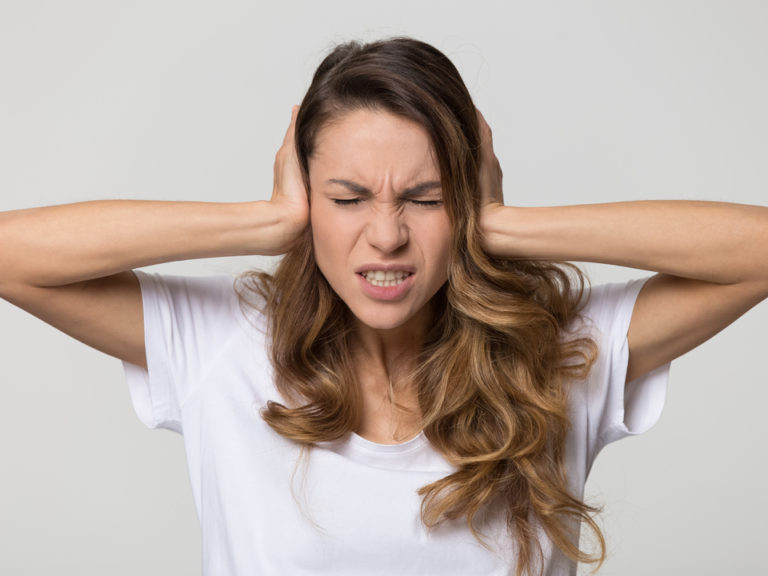Diving Deep: Why Are My Ears Always Ringing?
Introduction: Why Are My Ears Alway Ringing?
The constant ringing or buzzing in our ears is one of the most puzzling aural experiences there is. You’re not the only one who has ever wondered, “Why are my ears always ringing?” Tinnitus is a condition that affects daily living and can be as subtle as a background noise or as loud and bothersome as a constant noise. As we set off on this auditory adventure, we’ll delve deeply into the complex systems that control our ability to hear and examine the myriad causes of why our ears seem to be engaged in an ongoing dialogue of their own.
Our ears are our devoted allies in understanding the symphony of the world around us, whether it be the frantic activity of the streets or the peaceful stillness of a starlit night. What transpires, though, when this symphony suddenly changes course and emits a steady ringing that defies explanation? Is it brought on by exposure to loud noises, an underlying health issue, or something else entirely? These are the thoughts that cross our minds as we try to figure out the mysterious “why” of this aural occurrence.
We’ll travel through the fields of audiology, neurology, and even psychology as we explore the complex interactions between our auditory system and the messages it receives. We’ll explore the subtle systems that enable us to understand everything from a soft whisper to a thunderous round of applause as we make our way through the science of sound perception. We shall further our investigation into the numerous potential causes of chronic ringing in the ears, taking into account both the physiological and psychological elements that may be at play.
While the question “Why are my ears always ringing?” may sum up your query, the solutions we seek are anything but straightforward. Your guide through the maze of likely causes will be this blog, which ranges from lifestyle choices and age-related changes to exposure to loud situations and age-related changes. You’ll be better prepared to manage and perhaps even lessen the constant ringing in your ears if you have a greater grasp of these issues.
So come along with us as we set out on a trip of auditory discovery, revealing the complex tapestry that is the human sense of hearing by peeling back the layers of scientific knowledge and personal tales. You’ll learn not just a thorough understanding of tinnitus’ complex mechanisms and its underlying causes, but also practical advice for navigating the world of constant ringing in the ears.
Your Questions Answered: Why Are My Ears Always Ringing?

What causes persistent ear ringing?
Numerous underlying factors that lead to the feeling of constant or sporadic ringing, buzzing, hissing, or other sounds in the ears might contribute to persistent ear ringing, also known as tinnitus. Tinnitus is a symptom rather than a disease, but treating its effects on a person’s quality of life requires an awareness of its potential causes. Following are a few typical contributors and causes of chronic ringing in the ears:
Anxiety and stress
Stress and worry are two emotional elements that might make tinnitus symptoms worse. The sense of the ringing sound may be more apparent due to the brain’s increased level of awareness.
Salt Intake and Caffeine: Why are my ears always ringing?
Some people have reported experiencing tinnitus after consuming too much salt and caffeine, presumably as a result of how these substances affect blood flow and circulation.
Being around loud noise
Long-term exposure to noisy situations, such as those seen at sporting events, work sites, or around equipment, can harm the fragile inner ear hair cells that carry sound impulses to the brain. Tinnitus may occur from this damage.
Changes Caused by Age
Certain inner ear structures deteriorate over time as we get older. Presbycusis, an age-related hearing loss, can also cause tinnitus.
Loss of hearing
Tinnitus can be the result of the brain trying to make up for the absence of auditory input caused by any type of hearing loss, whether age-related or brought on by other causes like noise exposure or medical disorders.
Health Conditions
Tinnitus can be caused by a number of illnesses, including Meniere’s disease, otosclerosis, temporomandibular joint (TMJ) disorders, and vascular problems. The inner ear, auditory pathways, or blood supply to the ears may all be impacted by these diseases.
Medications: Why are my ears always ringing?
Tinnitus has been linked to certain drugs, especially those that are ototoxic (damaging to the ear), as a side effect. These drugs may have an effect on the auditory system, causing ringing noises to be heard.
Earwax Obstruction
Earwax buildup can clog the ear canal and lead to hearing problems, such as tinnitus. The symptoms could be improved by cleaning out the earwax.

How does tinnitus work?
Investigating the intricate interactions between our auditory system and the brain is necessary to comprehend the mechanisms underlying tinnitus. In essence, tinnitus is the sense of sound when there is no external auditory stimuli present. This perceived phantom sound can be heard as ringing, buzzing, hissing, or even music. Even while tinnitus is frequently linked to the ears, its roots actually lie deeper in the auditory system.
Tinnitus is primarily caused by an imbalance in the usual balance of brain activity. Intricate networks of nerve cells make up our auditory system, which carries electrical information from the ears to the brain where they are translated into audible meaning. This signalling process may be disrupted in tinnitus situations, resulting in the overactivity or hypersensitivity of certain neural conditions.
According to one widely accepted explanation, damage to the inner ear’s hair cells is the root cause of tinnitus. These hair cells are in charge of transforming sound vibrations into electrical signals the brain can understand. These cells may give erroneous signals to the brain if they are destroyed as a result of things like exposure to loud noise, aging-related degeneration, or other underlying diseases.
“Central gain enhancement” is a phenomena that may result from this erratic signalling. In essence, the brain becomes more sensitive to erratic or weak neural signals, which might lead to the perception of noises that aren’t present in the surrounding environment. An increase in neuronal activity can result from the brain’s attempt to make up for the diminished input from injured hair cells.
Are the effective treatments available?
Fortunately, depending on the underlying causes and unique circumstances, there are a variety of methods available to assist control and lessen the discomfort of recurrent ear ringing. Here are a few noteworthy choices:
Quitem Plus
A modern dietary supplement called Quitem Plus is made to promote sound auditory function. Quitem Plus seeks to address the causes that contribute to chronic ringing in the ears and boost overall auditory health. It is formulated with natural components renowned for their potential advantages on hearing health.
NeuroRise
A supplement for brain health called NeuroRise might tangentially help with tinnitus management. It may contribute to a balanced auditory system response by enhancing cognitive function and neurological health, potentially providing respite from the unceasing ringing in the ears.
Cortexi
The brain health vitamin Cortexi was created to assist memory, cognition, and general brain health. While not aimed towards tinnitus specifically, a healthy brain can help us control how we perceive and react to auditory experiences.
SonoVive
SonoVive is a special combination of substances made to maintain inner ear health and enhance hearing performance. SonoVive may help those with chronic ringing in the ears by concentrating on the health of the auditory system.
Sonobliss
A complete dietary supplement called Sonobliss works to support both general health and hearing wellness. Its carefully chosen chemicals focus on several facets of auditory function, possibly assisting in lessening the negative effects of recurrent ear ringing on daily living.
The effectiveness of these products can differ from person to person, so it’s vital to keep in mind that they should be used in conjunction with other tinnitus management strategies.
Does stress or anxiety play a role in ear ringing?
Tinnitus, a disorder that causes ringing in the ears, can be significantly impacted by stress and anxiety. There is a high correlation between elevated stress levels and the feeling of ringing, buzzing, or other sounds in the ears, even though the precise relationship is complicated and not entirely understood.
It is well recognised that feelings of stress and worry cause the body to react physiologically, including the release of stress hormones like cortisol. The auditory system is just one of the many biological systems that these hormones might affect. Due to the extreme sensitivity of the auditory system, any interference with its normal operation may cause perceptual changes in how sound is perceived.
The microscopic hair cells in the inner ear that convert sound vibrations into electrical impulses that the brain interprets as sound can be impacted by stress-related changes in blood flow and circulation. Stress can also make the brain more sensitive to signals, which could lead to an inflated sense of physiological noises like blood flow or muscle contractions.
Additionally, the emotional anguish brought on by continual ear ringing may result in a feedback loop. Because continual ringing interferes with daily activities, people who experience it may experience anxiety or worry. This heightened emotional response may then worsen how the ringing is perceived, creating a vicious cycle.
Can hearing loss contribute to tinnitus?
Tinnitus and hearing loss frequently have a strong link. Tinnitus is a common symptom of hearing loss, and there are various ways the two disorders are related. The feeling of ringing, buzzing, or other auditory sensations may occur when the auditory system is impaired due to hearing loss and the brain attempts to make up for the lack of external sound by producing internal sounds. When there is sensorineural hearing loss, which is brought on by damage to the hair cells or nerves that carry sound impulses to the brain, this occurrence is more common.
Additionally, hearing loss might impair the brain’s capacity to block out distracting noises and concentrate on crucial auditory information. The experience of tinnitus may be amplified due to the lack of sound filtering, making it more obvious and annoying. Tinnitus can occur at specific frequencies that match to hearing deficiencies in those who have hearing loss in certain frequency ranges.
It’s important to note that using hearing aids or cochlear implants to treat hearing loss might occasionally result in less tinnitus being perceived. These gadgets work to “distract” the brain from the internal noises connected to tinnitus by enhancing external sounds and enhancing overall auditory input.
An audiologist can offer insightful advice if you suspect a connection between your tinnitus and hearing loss. Audiologists may perform comprehensive evaluations to ascertain the degree of your hearing loss and can also suggest the best courses of action to treat both your hearing and tinnitus concerns.
How does age impact the likelihood of tinnitus?
People of all ages can experience tinnitus, which is the feeling of ringing or buzzing sounds in the ears without an external source. However, there is a clear link between tinnitus prevalence and age. The probability of developing tinnitus tends to rise as people age.
Tinnitus is more common in elderly people due to presbycusis, an age-related hearing loss, which is a significant contributing factor. The fragile inner ear structures can gradually degenerate with age as a result of things like cumulative noise exposure, heredity, and everyday wear and tear. Our ability to perceive specific frequencies of sound, particularly those connected to speech comprehension, may decline as a result of this age-related damage.
The experience of phantom noises, such as the ringing or buzzing frequently connected with tinnitus, can occasionally emerge from the brain’s reaction to this absence of auditory data. This phenomenon can happen when the auditory processing areas of the brain work harder to make up for the diminished input from the injured cochlea.
Additionally, as we age, the cumulative impacts of a lifetime of noise exposure can become apparent. Long-term exposure to noisy surroundings, whether from work noise or leisure activities like going to concerts, can cause hearing impairment. Tinnitus risk may then increase as a result of this injury.
It’s crucial to remember that while age plays a big part in the onset of tinnitus, it’s not the only cause. Regardless of age, other variables, like as underlying health issues, drugs, and personal vulnerability, can also contribute to the development of tinnitus.
It is advised to get expert advice from an audiologist or healthcare provider if you have tinnitus caused by age-related conditions. To establish the severity of hearing loss and suggest relevant interventions, audiologists can conduct thorough evaluations. Hearing devices made to address age-related hearing loss and maybe relieve the associated tinnitus are among the possible management techniques.
In conclusion, cumulative lifetime noise exposure and age-related changes in the auditory system can have a considerable impact on the chance of acquiring tinnitus. Prioritising our hearing health and taking into account actions that can enhance our general quality of life becomes more crucial as we age.
Conclusion: Why are my ears always ringing?
Tinnitus, a continuous ringing in our ears, can be a baffling and occasionally upsetting companion in the world of auditory sensations. We have learned about the complex interplay of variables that contribute to this puzzling event through our investigation. The reasons for chronic ringing in the ears might range from aging-related changes to noise exposure and underlying medical disorders.
Tinnitus is a problem that should not be neglected, that much is still clear. Its presence can have an impact on our daily lives, influencing everything from our capacity to focus to our general wellbeing. The good news is that we can take action to stop this internal symphony from continuing.
You may find specialised treatments if you seek expert advice from audiologists if age-related hearing loss is a factor in your tinnitus. Tinnitus relief is now possible with more and more sophisticated hearing devices that are made to improve hearing and reduce tinnitus.
Examining the world of supplements can also provide a natural means of treating tinnitus. Certain supplements have shown promise in lowering the severity of ringing in the ears and maintaining general auditory health, according to research and professional recommendations. These supplements provide a proactive strategy to assist your hearing system, from antioxidants to particular vitamins and minerals.
Taking action can help you on your path to reducing the ringing in your ears, whether it’s through dietary changes, consulting a doctor, or taking into consideration suggested supplements. You may improve your auditory health and restore the harmony of sound that enhances your daily experiences by recognising the presence of tinnitus and taking action to remedy it.
Consider the value of consulting a professional for advice as you proceed, armed with knowledge and a variety of potential answers, and look into the supplement possibilities that are available to you. You may maximise your enjoyment of life’s aural tapestry by taking charge of your hearing health.
Similar Blog Titles
How Can I Improve My Prostate Health? 7 Expert Tips You Need to Know
How Can I Improve My Prostate Health? Discover 7 expert tips on diet, exercise, supplements,...
Best Exercise to Flatten Your Belly: A Quick 10-Minute Routine
Discover the best exercise to flatten your belly in just 10 minutes. Plus, enhance results...
Free Anti Aging Samples: Unlocking the Secrets to Youthful Skin
Discover the significance of free anti aging samples. Grab your free ebook and explore the...
Download Free Keto Recipes: A Culinary Adventure to Better Health
Discover a world of flavor with our free keto recipes! Download free keto recipes now...
Unveiling the Best: What Type of Fish is Good for Weight Loss
Unlock weight loss success with the best fish choices. Discover what type of fish is...
Beyond 50: Choosing the Best Anti Aging Foods To Eat for a Vibrant Lifestyle
Unlock the fountain of youth with the "best anti aging foods to eat." Elevate your...










